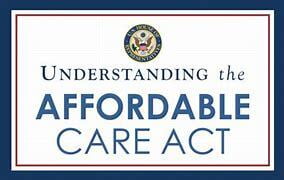Big Changes: ICHRA, Medicaid/CHIP, Premium Subsidies, Telehealth & Mental Health Coverage

Health-insurance rules are shifting in multiple directions: new employer-options, public-program tweaks, subsidy changes, and expanded digital-care access. At the Franco Suarez Agency, we stay on top of these developments so you don’t have to—and we translate them into actionable financial strategies. Let’s walk through the biggest changes and how they affect your coverage and wealth-building path.
Introduction of ICHRA
(Individual Coverage Health Reimbursement Arrangement)
An employer offering an ICHRA reimburses employees tax-free for individual-market insurance premiums (rather than offering a group plan). This gives more flexibility to employees, but also interacts with subsidy eligibility. PeopleKeep+1
Key point: If you accept the ICHRA reimbursement, you may be disqualified from premium tax credits (subsidies) in the individual market. Your choice matters. PeopleKeep+1
For employers, the ICHRA remains compelling even if individual-market premiums rise—but for employees, you must evaluate: is the employer allowance enough? Will you lose subsidies? What will your net costs be?
At Franco Suarez Agency, we’ll help you run those numbers: employer allowance + subsidy (if eligible) + out-of-pocket = net cost. That feeds into your cash-flow, debt-reduction and retirement strategy.
Changes to Medicaid & CHIP
The 2025 federal Budget Reconciliation Act includes sweeping changes to eligibility, enrollment and cost-sharing for the public programs KFF+1
Examples: Some lawfully present immigrants may lose eligibility for Medicaid/CHIP under certain rules beginning October 1, 2026. Center For Children and Families
States will face cost shifts. Over the next decade, federal Medicaid/CHIP spending is estimated to be cut by about $990 billion under the law. Center For Children and Families
Implication: If you or a family member rely on Medicaid/CHIP, now is the time to be proactive—changes may affect coverage, cost-sharing, verification and renewals.
At Franco Suarez Agency, we monitor these public-program changes and help you evaluate whether rolling into a Marketplace plan might make sense—or whether you need to plan for transitions.
Premium Subsidies in the Marketplace
The enhanced premium tax credits (PTCs) that made many plans highly affordable were enacted under the American Rescue Plan Act and extended under the Inflation Reduction Act through the end of 2025. Commonwealth Fund+1
If not extended or changed, individuals could see their share of premiums rise. For example: an individual earning ~$28,000 could pay only ~1% of income under enhanced credits; without them it might rise to ~6%. KFF
Planning tip: We’ll help you estimate your subsidy eligibility and simulate scenarios where credits are reduced. That way you aren’t blindsided, and you can incorporate health-insurance cost into your budget, manage debt, and preserve retirement savings.
Telehealth & Mental Health Coverage
During the COVID era, many flexibilities were introduced for telehealth. Some remain in place; others are changing. CMS+1
For example: As of September 30, 2025 many non-behavioral telehealth flexibilities (originating-site/home delivery, audio-only services) for Medicare were set to expire. Baker Donelson+1
For behavioral/mental-health services: Medicare patients may receive telehealth at home; geographic restrictions and in-person prerequisites have been eased in some cases. telehealth.hhs.gov+1
Why it matters: If you rely on telehealth for convenience, rural access, or mental-health care, you need to check your plan’s network, service coverage, audio vs video options, and any in-person visit requirements now or in future.
We at Franco Suarez Agency will review with you: “Does my plan cover telehealth? What about mental-health care? What about audio-only? What if I live in a rural area or travel frequently?” We integrate that into your total health-cost strategy.
How FSAs and Your Health Plan Tie into Wealth-Building
A Flexible Spending Account (FSA) and Health Savings Account (HSA) aren’t just nice add-ons — they are tools to reduce out-of-pocket costs, manage debt (less medical debt = better financial health), and free up capital for long-term savings.
At Franco Suarez Agency we help you calculate the optimal FSA/HSA contributions given your plan (deductible, out-of-pocket max), expected health expenses, and your broader financial goals (retirement, paying down debt).
Example: If you expect certain expenses (prescriptions, specialist visits, mental-health sessions, telehealth) you can plan your FSA/HSA contributions to maximize tax advantage and reduce the burden on your cash-flow. The health plan becomes part of your financial plan, not just a monthly premium.
We also help you track and use those funds effectively (so you don’t lose them), monitor changes (that might raise your out-of-pocket costs), and plan ahead for next year’s enrollment.
Action Steps
Review your employment situation: Does your employer offer an ICHRA? If so, schedule a meeting to evaluate the allowance vs subsidy eligibility.
Check public-program status: If you or a family member are on Medicaid/CHIP, check whether your state is impacted by eligibility/verification changes and plan accordingly.
Estimate subsidy scenarios: Even if subsidies remain, model your costs assuming they decline—so you’re prepared.
Audit your telehealth/mental-health coverage: What does your current or prospective plan cover? What restrictions or in-person requirements apply?
Use FSA/HSA strategically: Let us help you map out contributions, expected health usage, and how this ties into your debt/retirement plan.
Schedule your coverage review with us: We’ll help you integrate all the above into a cohesive health-cost + wealth-building strategy.
Closing
The landscape of health coverage is shifting. New employer-options like ICHRA, evolving public-program rules for Medicaid/CHIP, potential subsidy changes, and telehealth coverage adjustments all mean that “just picking a plan” is no longer enough. At Franco Suarez Agency, we don’t just help you pick a plan — we help you design a health-insurance strategy that protects your well-being and supports your financial future. Let’s work together to lock in the right coverage, manage expenses, reduce debt and build toward retirement.

